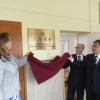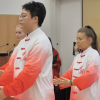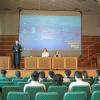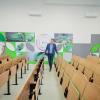Development of the Science and Innovation Park has begun
2023
Jan
30
Joining the Science and Innovation Park network is a major milestone in the development of the University of Pécs. On 26 January, Balázs Hankó, State Secretary for Innovation and Higher Education, József Bódis, Chairman of the Board of Trustees of the UQ Foundation that maintains the University of Pécs, Attila Miseta, Rector and József Betlehem, Vice-Rector for General Affairs, held a press conference in the Senate Hall of the University of Pécs.
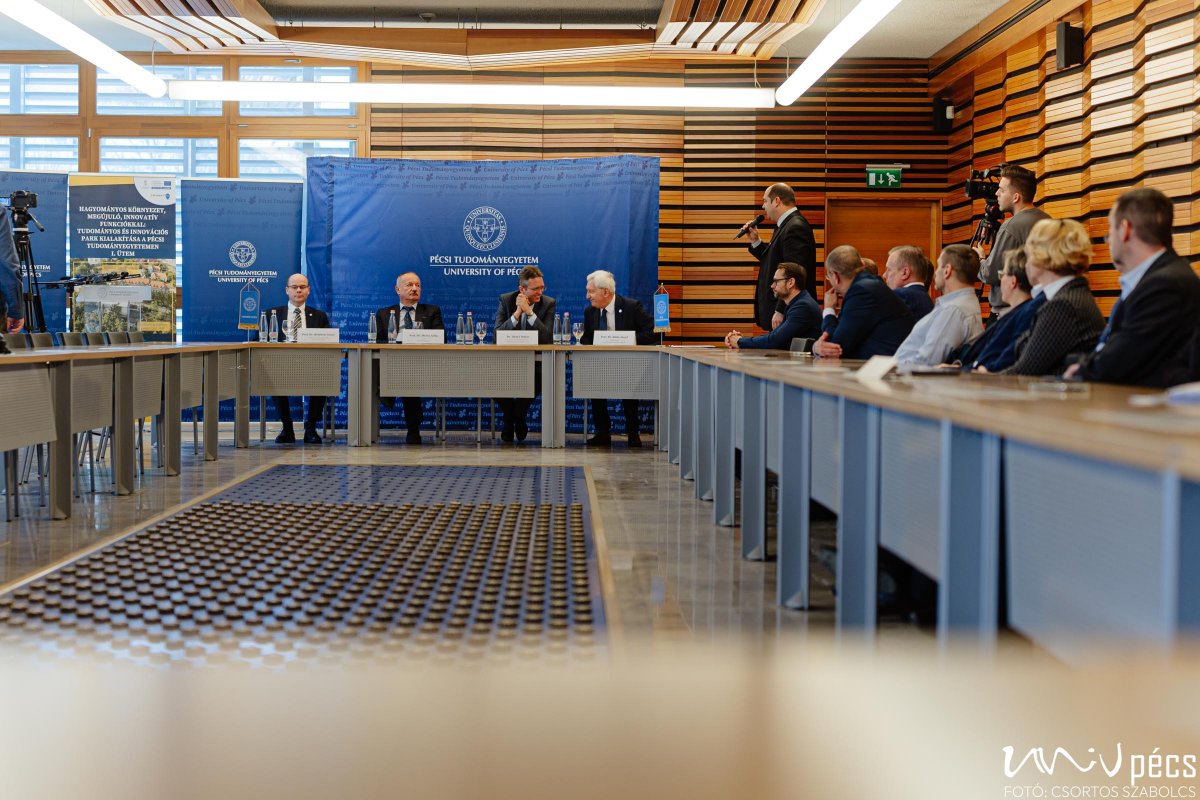
At the press conference, they shared the information that the Science and Innovation Park to be established at PTE aims to create scientific and innovation hubs, which will be integrated into the existing infrastructure and will
enable the University of Pécs to accommodate corporate development needs, to play its role in economic revitalisation and to commercialise the knowledge "generated" at the university on a market basis.
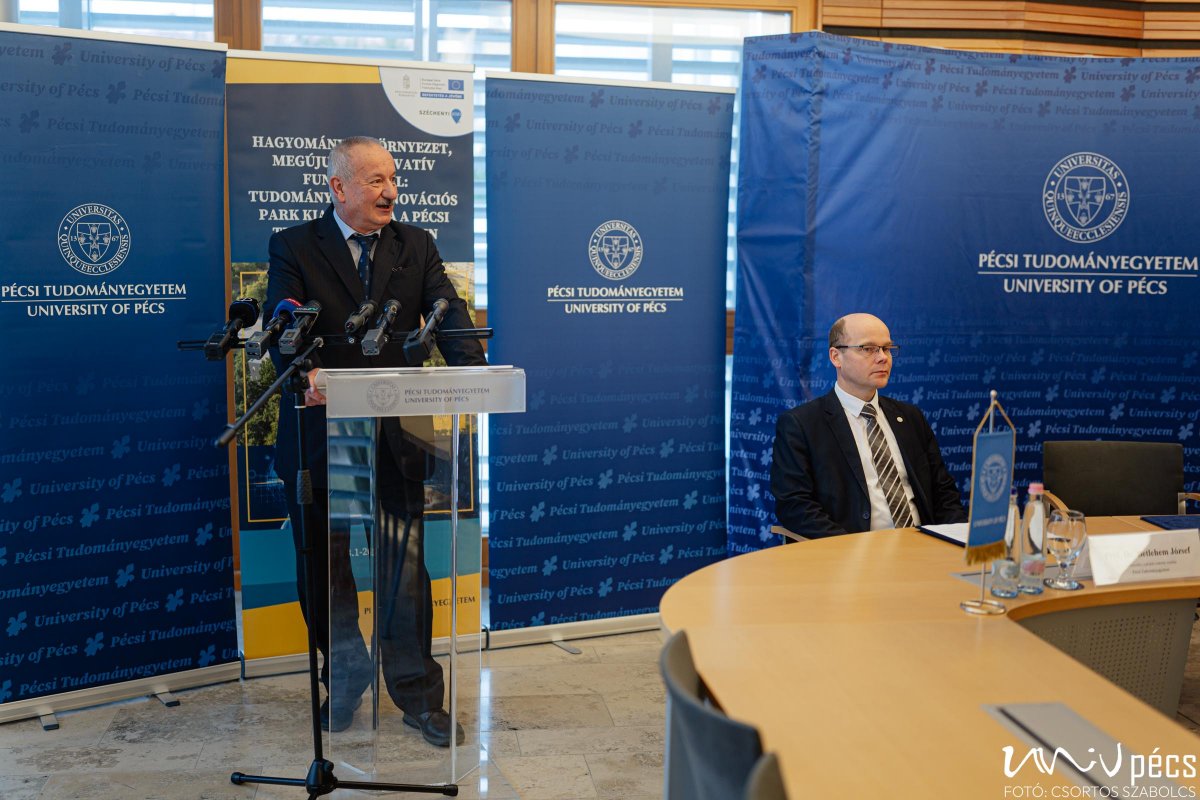
"Dynamic developments have taken place at the University of Pécs in recent years", said Rector Dr. Attila Miseta, and recalled that "among other things, we have successfully implemented several new investments within the Modern Cities Programme, including those involving buildings that are difficult to use. Almost all the faculties of PTE have benefited from these improvements." The Rector also stressed that the Science and Innovation Park required serious professional preparation, driven by the then former Minister László Palkovics, the then State Secretary Professor József Bódis and Tibor Gulyás, now Deputy State Secretary and a former student of the University of Pécs.
"The success of the Modern Cities Programme at PTE and its sustainability give us good hopes that this will also be the case for the future Science and Innovation Park"
- underlined Attila Miseta, and added: "Good things happen even in difficult times."
"The model change has brought a competitive turnaround in Hungarian higher education," said Balázs Hankó, adding that "progress always has its envious partners", and then presented forward-looking data that he listed among the already visible results of the model change. Among other things, he said that between 2020 and 2021, the number of Hungarian publications in top-ranked scientific journals increased by 26 per cent, R&D and innovation expenditure increased by 40 per cent, and three and a half times more patents were granted than before. "From the Horizon project, which so many people are asking about, the amount of funding awarded has increased by 71 per cent, and there will be more applications and funding available in the future."
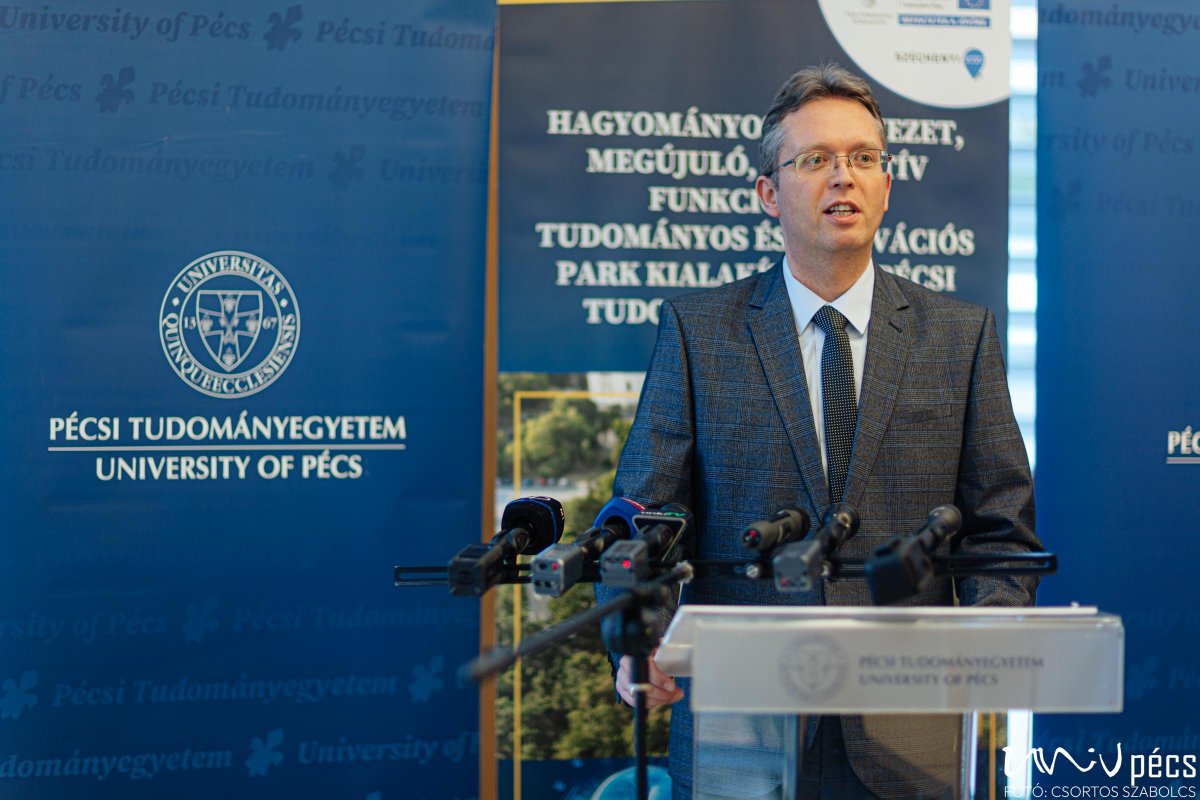
On the establishment of Science and Innovation Parks in Hungary, he said:
"The University of Pécs is one of the leaders in the field. We are providing 4.5 billion HUF for the start-up of the institution, which will link research capacity, higher education and economic actors.”
“It is also no secret that we want Hungarian higher education institutions to be among the TOP universities," he said, adding that they would like to see one Hungarian university in the top 100 in the world ranking, but three among the best European universities. "There is also an innovation ranking, in which Hungary is currently 21st. Our goal is to be tenth by 2030. To achieve this, we need knowledge production, for which we need about 9,000 researchers; knowledge flows, which are provided by science and innovation parks, and knowledge production, i.e. patents", the State Secretary stressed, adding that "it is important that young Hungarians feel that it is good to be at Hungarian universities today because they are developing. I encourage them to apply to higher education."
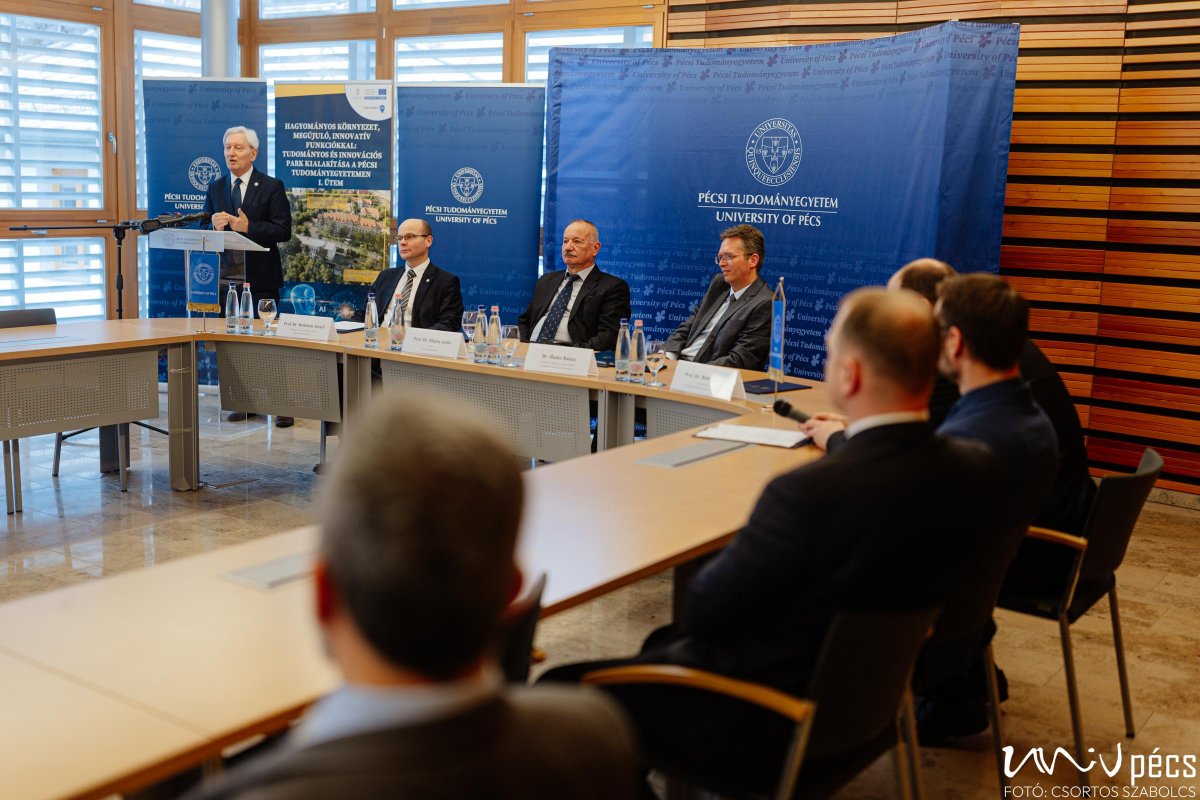
“The model change is a professional issue," said Professor József Bódis, President of UQ Foundation. "The resources have doubled, the scientific norm has returned, but with double the resources... The university has put together a serious campus development plan, and we are moving forward with it. It is also the framework within which we have an academic innovation ecosystem that can transform knowledge with economic actors in the region. This is what the PTE Science and Innovation Park is all about.
We had a good start and today we celebrate that the first step has been taken."
- he added.
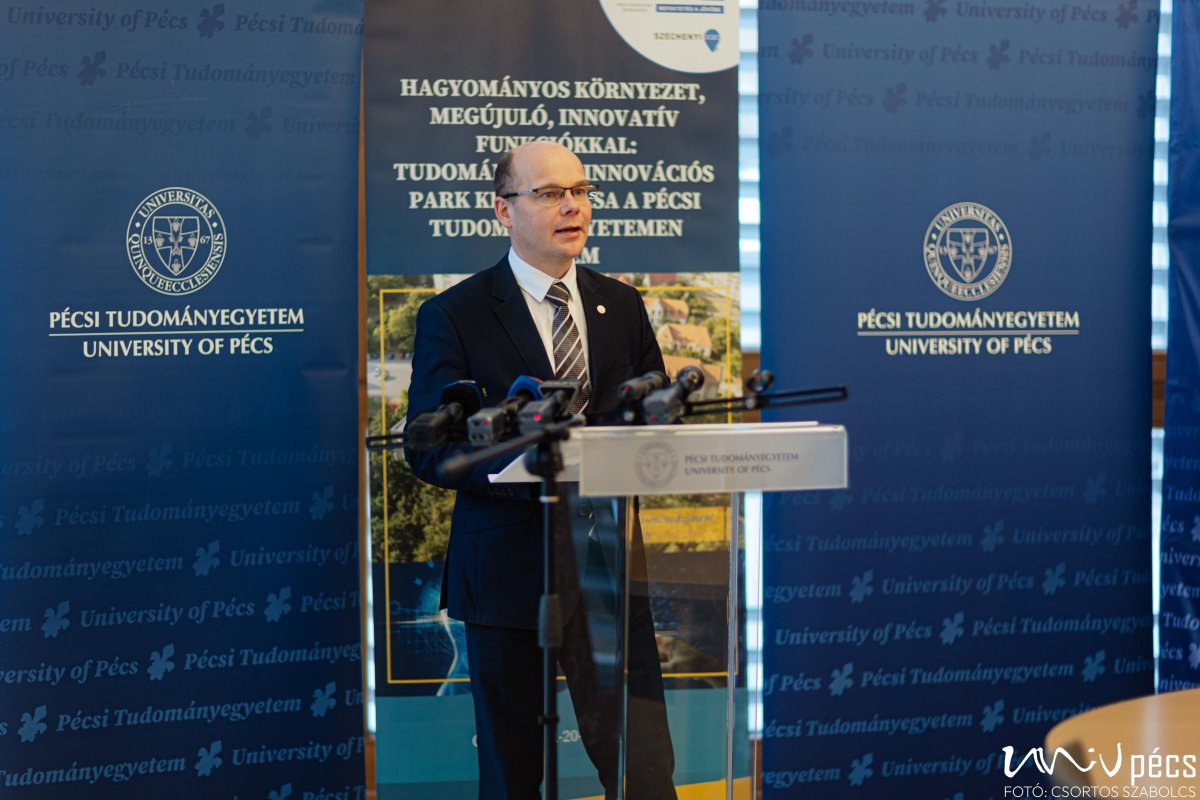
"After an optimistic start, the journey was painstakingly difficult, and the crisis could have led to a shutdown," said Dr. József Betlehem, Vice Rector about the park:
"We are starting with a sustainable, viable programme, and in addition to the four and a half billion forints in funding, we will also need to move fast, as the goal is to have the buildings in Nyár Street ready by November 2023, where the seven research teams will work."
- Dr. József Betlehem stressed, and thanked the Faculty of Engineering and Information Technology for its help with the construction and the plans. "We needed a quick adaptation," he added.
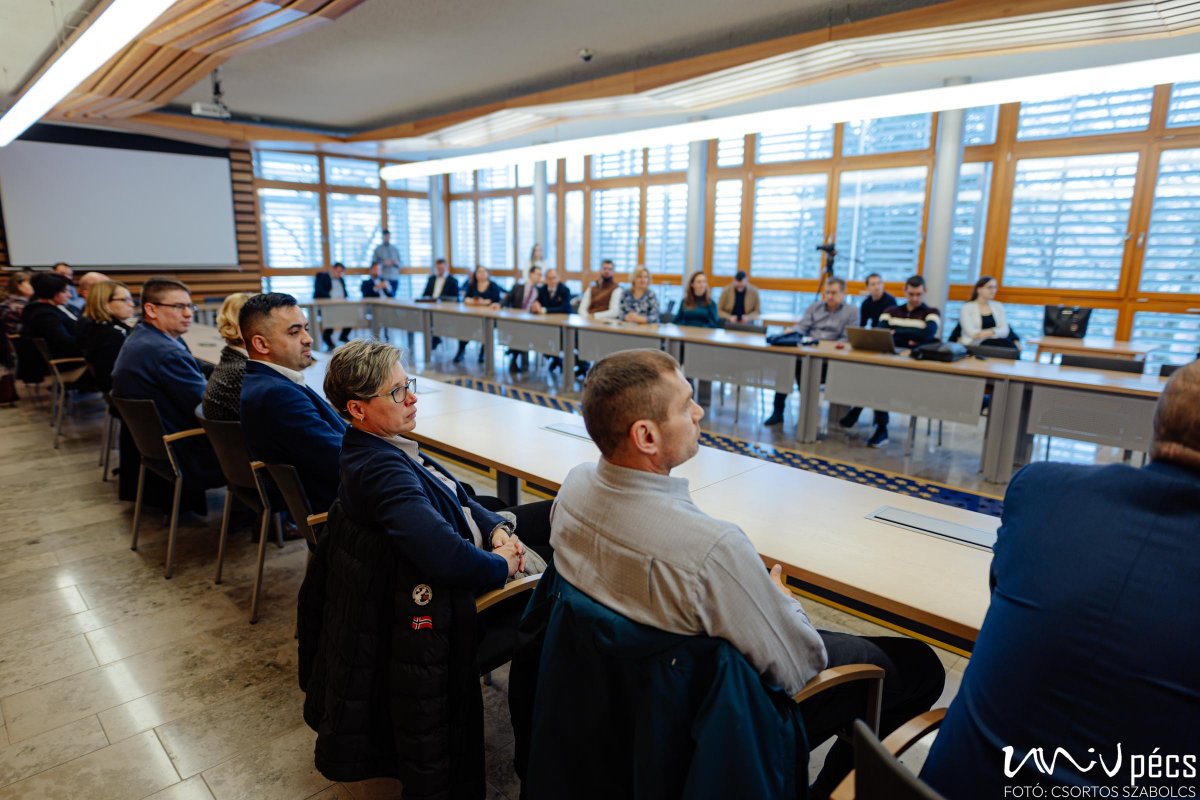
The location of the PTE Nyár Street site connects the different disciplines, making it an excellent base for bringing together the developments already underway and those to come. The Centre for Digital Data Analysis and Laboratory will move to the main building with several research groups. Research groups working on health and economic data analysis, secondary raw material and hydrogen technology exploitation, and research and development on smart health applications and processes will be co-located in this building. The architectural concept will maximise respect for the character, facades, architectural appearance and layout of the building, while the interior design concept will be subordinated to the functionality of the centre. By opening up the basement to the north, it ensures a natural connection between the community spaces located here and the surrounding environment.
The former pulmonology building will be converted into the Knowledge Management Centre, which will provide the capacities and processes for the flow of university knowledge to industry and for the transfer of knowledge from industry to researchers, teachers and students. A new entrance extension will be added to the building from the east, removing the previous entrance and staircase extension. The interior spaces will allow for new working cultures, such as coworking offices, i.e. communal offices for people working independently.
Construction started in November 2022 and is expected to be completed in autumn 2023. Parallel to the construction works, the procurement of furniture, IT equipment and research tools needed to make the buildings functional is ongoing. The 7 research teams are expected to occupy the completed Science and Innovation Park in 2024.
The project is being implemented with the support of the European Union under the Széchenyi 2020 programme, within the GINOP-2.3.1-20-2020-00007 project.
- Log in to post comments
University of Pécs | Chancellery | IT Directorate | Portal group - 2020.
